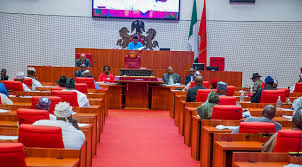South-East Caucus Calls for JAMB Registrar’s Resignation Amid 2025 UTME Controversy
The South-East caucus in Nigeria’s House of Representatives has demanded the resignation of Ishaq Oloyede, Registrar of the Joint Admissions and Matriculation Board (JAMB), following a major technical failure in the 2025 Unified Tertiary Matriculation Examination (UTME).
Reactions and Calls for Action
Lawmakers are also calling for the cancellation of the current UTME and propose conducting a new exam between July and August 2025. The controversy erupted after the results, released on May 9, revealed that over 78% of candidates scored below 200 out of 400, sparking protests over exam integrity.
What Went Wrong?
JAMB’s review uncovered a critical technical error caused by faulty server updates in Lagos and South-East zones, which prevented responses from being uploaded during the initial days of the exam. Oloyede explained that issues with one of the board’s technical service providers went unnoticed until after the results were released.
Affected candidates can retake the exam between May 16 and 19. However, this remedial measure has received mixed reactions, with many Nigerians voicing concerns on social media.
The South-East Impact
The South-East caucus emphasised that the five southeastern states were “directly impacted,” describing the situation as a “disastrous and catastrophic” loss of trust in the system. They criticised JAMB’s response as inadequate and called for a total cancellation of the exams, citing the trauma caused to students, including those still sitting for WAEC, whose retake notices were issued with less than two days’ notice, often clashing with ongoing exams.
Call for Leadership Accountability
In their statement, the lawmakers urged that those responsible, including JAMB’s leadership, be held accountable. They specifically called for Professor Ishaq Oloyede’s resignation, asserting that leadership must accept responsibility for this failure. They also called for an immediate suspension of key officials and a thorough investigation into the root causes.
A Difficult but Necessary Conversation
The caucus’s stance reflects the broader public’s frustration with the exam’s integrity and the state’s preparedness to handle such crises. As Nigeria continues to grapple with educational challenges, many hope this incident prompts far-reaching reforms to restore trust in our national examination processes.



